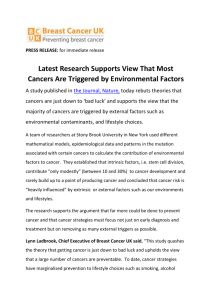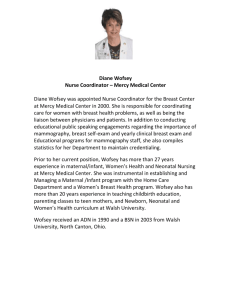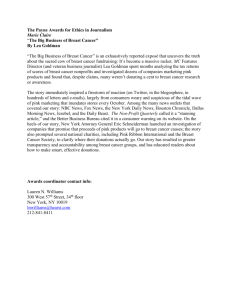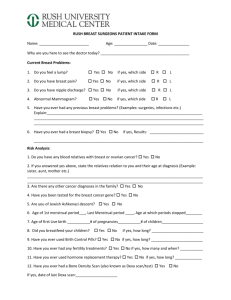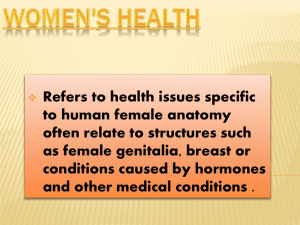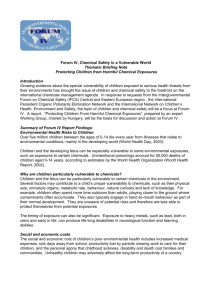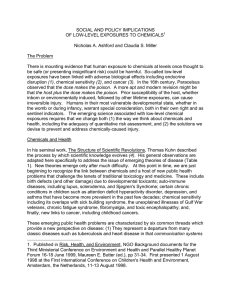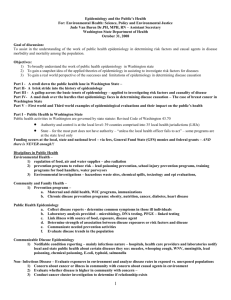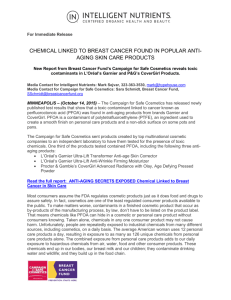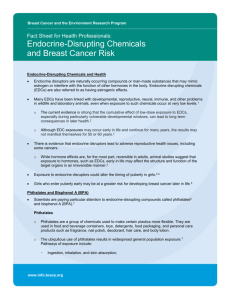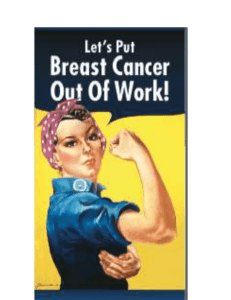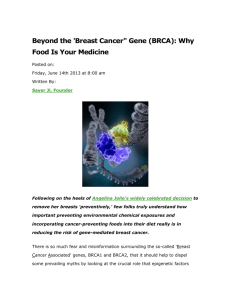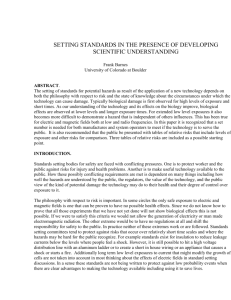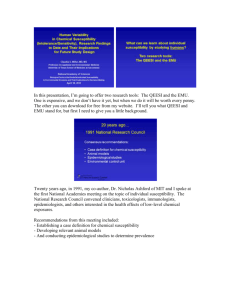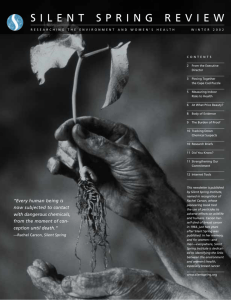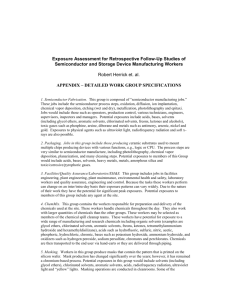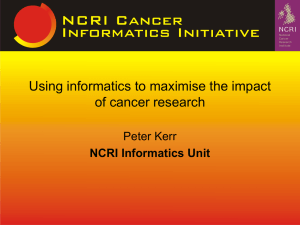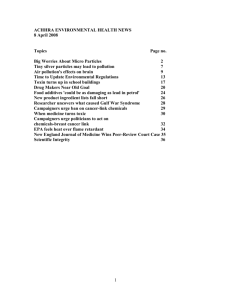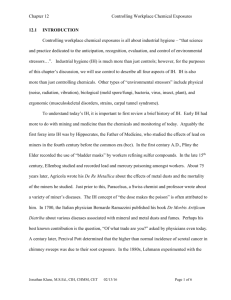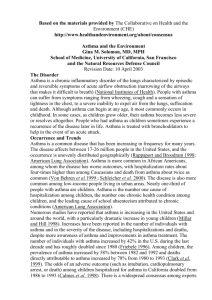Fifty chemicals commonly found in the
advertisement
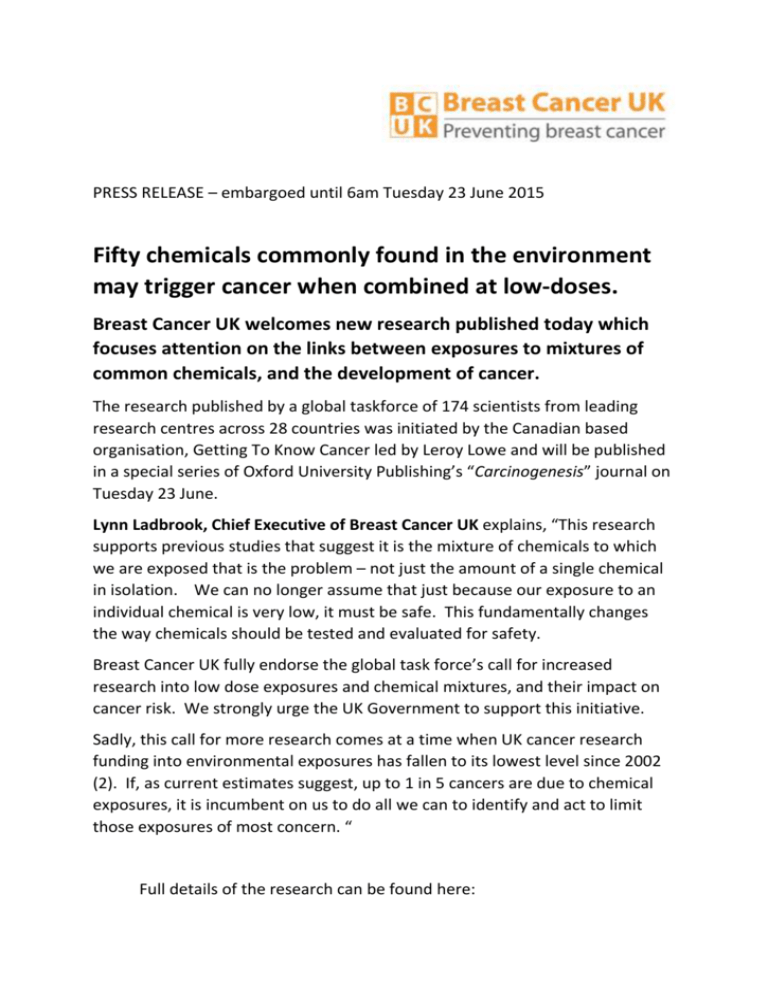
PRESS RELEASE – embargoed until 6am Tuesday 23 June 2015 Fifty chemicals commonly found in the environment may trigger cancer when combined at low-doses. Breast Cancer UK welcomes new research published today which focuses attention on the links between exposures to mixtures of common chemicals, and the development of cancer. The research published by a global taskforce of 174 scientists from leading research centres across 28 countries was initiated by the Canadian based organisation, Getting To Know Cancer led by Leroy Lowe and will be published in a special series of Oxford University Publishing’s “Carcinogenesis” journal on Tuesday 23 June. Lynn Ladbrook, Chief Executive of Breast Cancer UK explains, “This research supports previous studies that suggest it is the mixture of chemicals to which we are exposed that is the problem – not just the amount of a single chemical in isolation. We can no longer assume that just because our exposure to an individual chemical is very low, it must be safe. This fundamentally changes the way chemicals should be tested and evaluated for safety. Breast Cancer UK fully endorse the global task force’s call for increased research into low dose exposures and chemical mixtures, and their impact on cancer risk. We strongly urge the UK Government to support this initiative. Sadly, this call for more research comes at a time when UK cancer research funding into environmental exposures has fallen to its lowest level since 2002 (2). If, as current estimates suggest, up to 1 in 5 cancers are due to chemical exposures, it is incumbent on us to do all we can to identify and act to limit those exposures of most concern. “ Full details of the research can be found here: http://carcin.oxfordjournals.org/content/36/Suppl_1 Breast Cancer UK Contacts: Lynn Ladbrook, Chief Executive - 07786 393181 Louise Bowers, Communications Manager - 07930 854 527 Notes to Editors 1. Breast Cancer UK works to save lives and reduce breast cancer rates by tackling the environmental and chemical causes of the disease. For more information on how to reduce your risk, or how harmful chemicals are linked to breast cancer please visit our website: www.breastcanceruk.org.uk 2. Funding statistics sourced from NCRI Cancer Research Database. NCRI has been collecting cancer research funding data since 2002, to understand how money is spread across the various areas of research, and identify any gaps. www.ncri.org.uk/what-we-do/research-database 3. For more information or to arrange an interview with members of the research team involved in the report, please contact Gillian Trevethan at Brunel University Email: gillian.trevethan@brunel.ac.uk / 01895 266599
